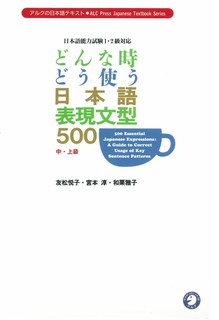

But you can think of kudasai as like a favour. Typically, in polite conversation when you’re asking for a thing in a shop, you can use onegaishimasu. You might notice here there are two options when it comes to the word ‘please’. Wait a moment please – Chottomatte kudasai
#JAPANESE EXPRESSIONS HOW TO#
You’ve already just seen an example of how to use ‘excuse me’ in Japanese, so let’s get a clear list of all the most common polite phrases you might need to use when talking to a strange, sales clerk, or waiter in Japan. Sumimasen (excuse me) Shinjuku eki wa (Shinjuku Station) doko (where) desu (is) ka? Common and Polite Japanese Phrases So, say you’re in central Tokyo and you want to know where Shinjuku Station is, you can say to someone on the street: Here are some common places you might want to ask for and pair with the phrase _ doko desu ka? Also, the literal meaning of ‘when’ is ‘what hour’ or ‘what time’ hence why nanji (when) is made up of nan (what) and ji (hour/time). The word for ‘what’ is actually nani but when paired with desu (is), it gets shortened to nan. So take a minute to get them square in your head. All words ending in ko, making them quite easy to muddle up. The rules and patterns for ‘where’ go like this: doko = where, koko = here, soko = there, asoko = over there. So you need to say the name of the thing before the question word. Quick note: In Japanese, the question word comes at the end of the sentence, unlike in English where it comes at the start. So here are a few Japanese question phrases to help you along. It’s crude, but it works! And you’re just looking to get by, after all. Likewise, if you ask how much something is, they can resort to counting on fingers. Knowing how to ask where a place is works fine usually, because people can point or even guide you somewhere.

So it’s best to ask questions that can be answered with visual cues. Asking where, when, and what in JapaneseĪs you can probably guess, the danger with asking questions is not understanding the answer they give you. Read More: Sushi Etiquette: How to Eat Sushi the Right Way.

So, the safest thing to do is use hitotsu for one and futatsu for two, regardless what the thing you want actually is. And, in truth, even local people forget which is which. Japanese actually has different counters for every shape of thing.Ī different way of saying ‘one round thing’ or ‘one long thing’. Now, this conversation isn’t perfect, but it’s simple and it works. You: *Pointing to a delicious fried chicken stick near the country* Kore wa hitotsu onegaishimasu (this thing one please)Ĭlerk: Hai.

So, a typical simple interaction in a Japanese convenience store (where you’ll frequently pick up useful items, food, and snacks) would play out like this: How much is this thing? – Kore wa ikura desu ka? Here are the most common phrases you’ll hear and need to use when navigating a basic transaction in a Japanese shop or restaurant. The places you’re most likely to visit and actually engage with local people in are shops (including convenience stores), bars, cafes, and restaurants. Another example from later in this article: How much is this? = Kore wa (this thing) ikura (how much) desu (is) ka? Japanese Phrases for Shops, Cafes, and Restaurants You’ll see it all the way through the rest of these Japanese phrases. So, just get used to the word ‘is’ being placed at the end of a sentence. And the second is desu (pronounced without the u, like dess), which basically means ‘is’, and it comes at the end of a sentence.įor example: This is a pen = Kore wa (this thing) pen desu (pen is). They’re the first two rules you need to learn and they’re very simple.įirst is that, in Japan, they voice their question marks. Two quick notes: Before we dig in, there are two Japanese words you’ll hear and say a lot. So, let’s take a look at some of the basic Japanese words and basic Japanese phrases you’ll need for a trip to Japan, as well as common words you’ll overhear on the street, a few grammar and pronunciation rules, and a few interesting Japanese language facts to help you out! (If you’re interested in going further with your Japanese study, here’s a book which I found tremendously useful when studying – much better than the text books you usually get recommended). It’s a very mathematical language that adheres to strict rules which are easy to follow, making pronunciation not only easy but fun to grasp! Japanese is pronounced almost exclusively in consonant-vowel pairs (such as ka, ke, ku, ki, and ko), meaning there is very little difficulty when it comes to pronunciation. The two best things about Japanese for people visiting Japan are its simple pronunciation and the frequent use of English words within the Japanese language (which we’ll talk about in a moment). Common Japanese Phrases to Start your Japan Adventure


 0 kommentar(er)
0 kommentar(er)
